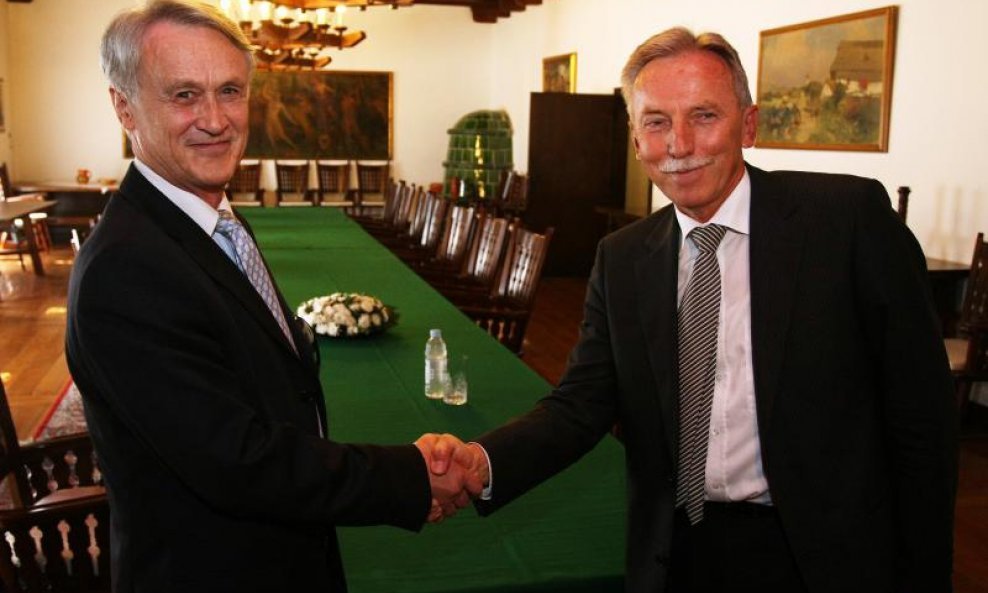Zdravko Rogic and France Arhar, the financial experts appointed by the governments of Croatia and Slovenia respectively, met in Zagreb on Tuesday in search of a solution to the problem of Croatian savings deposits in the now-defunct Slovenian bank Ljubljanska Banka.
They began to take stock of events that had affected the Ljubljanska Banka case since the two countries declared independence from the Yugoslav federation, in an effort to find a solution to the problem of the savings deposits which clients of the Zagreb branch of Ljubljanska Banka had transferred to Croatian banks and which were later financially covered by the Croatian government.
We began our inventory from 1989 when Yugoslavia launched the transformation of socialist banks into joint stock companies that were to operate according to banking rules in capitalist countries. It was then that it was decided that Ljubljanska Banka Zagreb, which until then had had a legal personality and had in fact been a Croatian bank, would become the Zagreb branch of Ljubljanska Banka, Rogic told the press after the meeting.
It was then that all the problems started, because all the rights and obligations of the branch became the responsibility of the parent bank. If Ljubljanska Banka in Zagreb had retained its legal personality, there would have been no problems, just as there were no problems with Ljubljanska Banka in Koprivnica later on, he said and added: "The milk has been spilt and now we need to move on."
The Zagreb branch of Ljubljanska Banka was a large savings bank with as many as 1,670,000 savings deposits in 1989. Of those, deposits in the amount of 545 million German marks were transferred to Croatian banks, while 312 million marks was not transferred.
Claims by depositors who did not transfer their deposits to Croatian banks and claims by Ljubljanska Bank towards clients in Croatia fall within the jurisdiction of courts and we will not interfere in that, Rogic said.
Arhar recalled that in the former Yugoslavia the state had guaranteed for foreign currency deposits regardless of legal personality, noting that none of the successor states had settled their accounts with the former National Bank of Yugoslavia to date.
Slovenia passed a special law to pay out those depositors, which is still in force and is based on the territorial principle. On the other hand, Croatia decided for humanitarian reasons to allow its depositors to transfer their savings deposits to Croatian banks, Arhar said.
Another problem is the different ownership structure of the banks in the two countries. While the biggest owner of Ljubljanska Banka is the Slovenian government, banks in Croatia are foreign-owned. However, there might be changes in that regard in Slovenia too as the Slovenian government has to find a way how to rehabilitate the banking system because of the present crisis.
Arhar said that Slovenia was interested in Croatia allowing Nova Ljubljanska Banka, the successor to Ljubljanska Banka, into its market, because as a future member of the European Union it would have to ensure free movement of capital.
There is no black and white solution here. Based on our analyses, we will try to find a modus vivendi for the past and at the same time ensure that the Croatian market opens to Slovenian banks, Arhar said.
The next meeting will be held in two weeks' time.






























